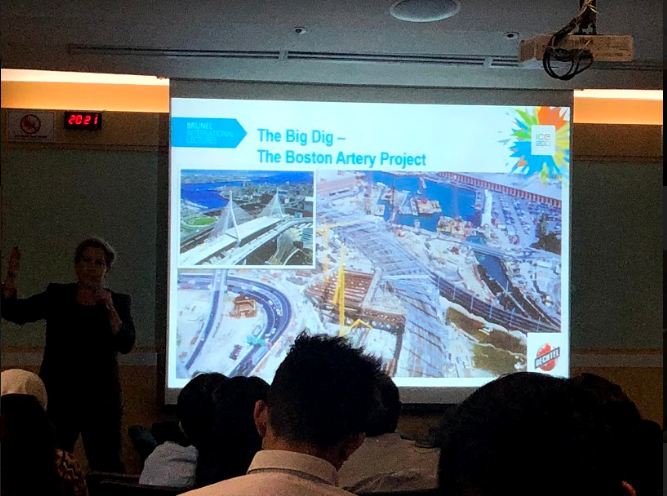12th Brunel International Lecture Series
“Dreaming Big”
It is no secret or surprise that a transport boom is overtaking the world. On every continent and in every government, transportation infrastructure is seeing a call to action as hasn’t been heard in decades. The reasons driving these are many, and the time for all institutions, private industries and members of the public to put a shoulder behind this boom is now.
Economic Prospects
The two key factors in bridging the gap between poverty and prosperity are education/skills, and mobility. Mobility is, of course, the goal of great transportation projects. Transport puts the wind in the sails of young adults starting off in the world; economically disadvantaged individuals making it to steady employment; small business enterprises connecting their products with customers; and growers, creators and workers with the education/skills to deploy moving forward. Mobility is the wind.
Social Justice
Future societies increasingly value all people, including those who need multiple diverse pathways for their transport. Now, in every single extended family, we each have at least one loved one, who – because of health, physical incapacity – a wheelchair, loss of sight, a potential for seizures, learning or mental differences, and, increasingly due to fragile old age – are not able to drive. Diverse transport options are, for them, the difference between imprisonment at home or freedom.
Environmental Imperatives
Climate change and the counting of our Carbon Footprint are no longer far away, abstract concepts, or a burden in the hands of our scientists! They are overtaking us today and the next generation is already changing the way we create every political decision we make, every bite of food we eat, every way we move. Dramatic, quantifiable environmental benefits are springing from intelligent transport projects, and new innovations – both from engineers and from all creative thinkers in all walks of life – are generating a leap-frogging of the benefits each year. New government priorities, funding models and stakeholder engagement methods are being crafted. What else is needed? What do leaders and engineers in great, powerful, intelligent transport projects need to do, and how can they
thrive amidst the changing nature of engineering and the emerging needs and capacities of the next generation? During her 12th Brunel International Lecture Series, Linda Miller OBE will address all of these concepts, using six “inescapables” to embrace and act upon. These will give practical examples, using concrete examples from recent projects on three continents.
- Speaker: Linda Miller
- Place: Binus Business School, The Joseph Wibowo Center, Room 310 Jalan Hang Lekir No 6, Senayan, Jakarta 10270
- Date: Wednesday, 21st November 2018
- Time: 7.00pm.



Comments :